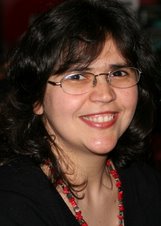1. Learning 2.0
By Helen Blowers
Public Service Technology Director
Public Library Charlotte and Macklenburg Country
Learning 2.0 is a successful free online training program for librarians in the latest Web technologies involved with Library 2.0. Learning 2.0 is a blog developed by Helene Blowers of North Carolina's Charlotte & Mecklenburg County public library. They have set up a list of 23 things they want staff to learn. Staff who complete all 23 get a USB MP3 player and get entered in a draw for a laptop. This project was based upon the website 43Things (which allows you to set and track personal goals) and the Stephen Abram article titled “43 Things I (or You) might want to do this year” (Information Outlook - Feb 2006). The program was organised in nine weeks involving tasks such as, reading articles about the technologies, setting up their own online services like blogs, bloglines, del.icio.us, and tasks involving write on the blog their thoughts about a topic, and showing how they could create a topic for their blog. This program has been adopted by many other libraries around the globe, and it is an excellent example of initiative and courage to be followed.
I have chosen this website because it is a case study of the use of social tool to teach social software to librarians.
----------------------------------
2. A Librarian’s 2.0 Manifesto
By Laura Cohen
Library 2.0 – An Academic’s Perspective, 8 November 2006.
Laura Cohen is a web support librarian at the University of Albany, New York – US. She writes a blog called Library 2.0: An Academic Perspective. She shares her experience working toward Library 2.0. On 8 November 2006 she wrote A Librarian's Manifesto on her blog. This manifesto is an insight about how librarians should think and behave when new challenges and changes occur. Laura presents 17 positive ways to react to those changes, such as:
- I will recognise that the universe of information culture is changing fast and that libraries need to respond positively to these changes to provide resources and services that users need and want.
- I will educate myself about the information culture of my users and look for ways to incorporate what I learn into library services.
- I will not be defensive about my library, but will look clearly at its situation and make an honest assessment about what can be accomplished.
Laura’s manifesto stands out as Library 2.0 best practice in contrast to those that remain on the traditional Library 1.0 and are afraid of changes.
This manifesto is important because shows how librarians should deal with changes without fear of learning new things.
----------------------------------
3. Web 2.0, Library 2.0, and Librarian 2.0: Preparing for the 2.0 World
By Stephen Abram
SirsiDynix vice president of Innovation
SirsiDynix OneSource – 21 December 2005
Stephen Abram, library futurist and vice president of Innovation at SirsiDynix defines Web 2.0 as being about conversations, interpersonal networking, personalisation, and individualism. Those features can be applied to library systems. He also describes the attributes of the next generation librarian. He states that Librarian 2.0 is a guru of the information age and should make every effort to understand the power of the Web 2.0 opportunities; learn the major tools of Web 2.0 and Library 2.0; use the latest tools of communication to connect content, expertise, people, and more. He emphasises that librarians should be prepared to inform and train users in the newest technologies that can have an impact on their success. He concludes that, it is essential that we prepare to become Librarian 2.0 now.
This article gives foundations of the new model 2.0, and it is a good source to identify the features of the Library 2.0 and Librarian 2.0.
